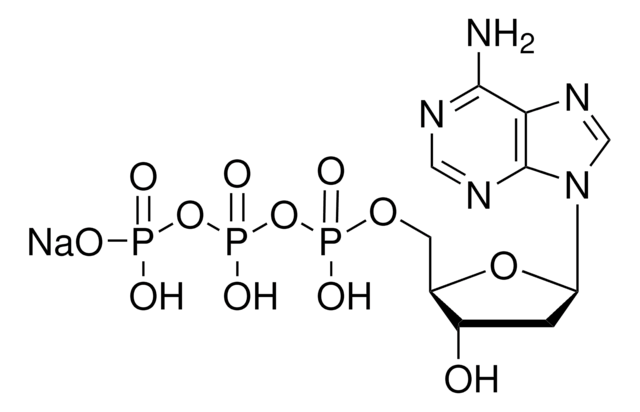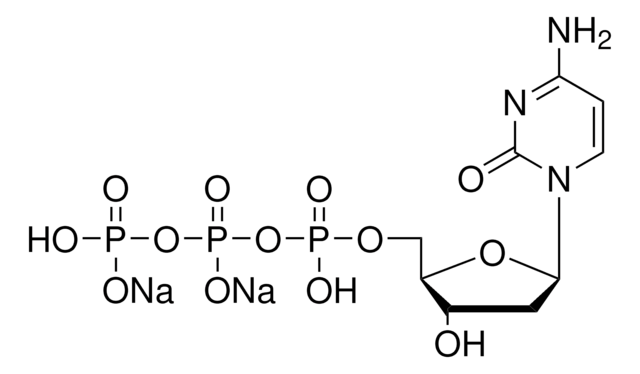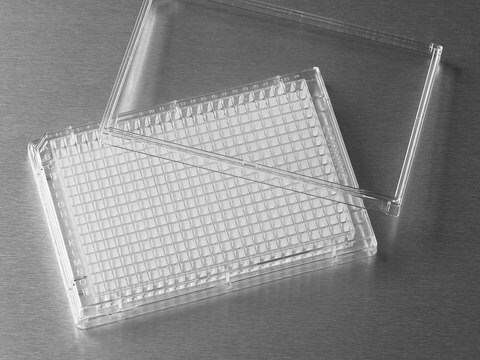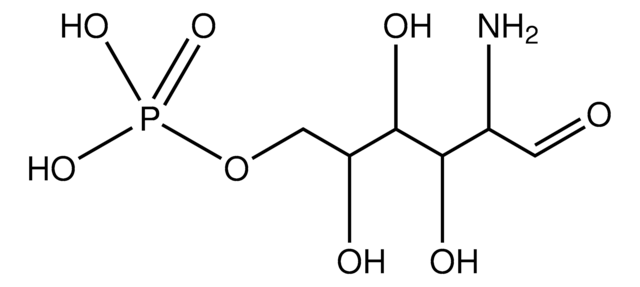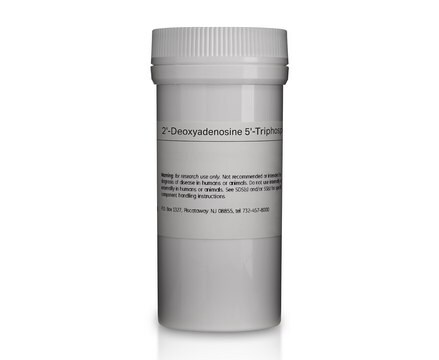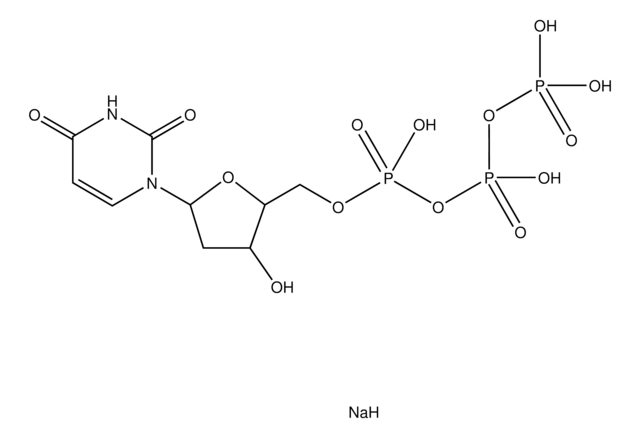DCTP-RO
Roche
dCTP
99% (dNTP), <0.9% (dNDP), solution, 100 mM
Synonym(s):
2′-Deoxycytidine 5′-triphosphate disodium salt, dCTP-Na2
About This Item
Recommended Products
description
PCR Grade, sodium salt
Quality Level
Assay
99% (dNTP)
form
solution
usage
sufficient for 125,000 standard reactions (03732690001)
sufficient for 31,250 standard reactions (11969021001)
sufficient for 6,250 standard reactions (11934520001)
packaging
pkg of 1,250 μL (11969021001 [100 mM])
pkg of 4 × 1,250 μL (03732690001 [4x100 mM])
pkg of 250 μL (11934520001 [100 mM])
manufacturer/tradename
Roche
concentration
<0.9% (dNDP)
100 mM
storage temp.
−20°C
SMILES string
[Na+].[Na+].NC1=NC(=O)N(C=C1)[C@H]2C[C@H](O)[C@@H](COP(O)(=O)OP([O-])(=O)OP(O)([O-])=O)O2
InChI
1S/C9H16N3O13P3.2Na/c10-7-1-2-12(9(14)11-7)8-3-5(13)6(23-8)4-22-27(18,19)25-28(20,21)24-26(15,16)17;;/h1-2,5-6,8,13H,3-4H2,(H,18,19)(H,20,21)(H2,10,11,14)(H2,15,16,17);;/q;2*+1/p-2/t5-,6+,8+;;/m0../s1
InChI key
ABWVCNMFYVEBIB-CDNBRZBRSA-L
Looking for similar products? Visit Product Comparison Guide
General description
Application
Quality
Physical form
Preparation Note
Other Notes
Storage Class Code
12 - Non Combustible Liquids
WGK
WGK 1
Flash Point(F)
does not flash
Flash Point(C)
does not flash
Certificates of Analysis (COA)
Search for Certificates of Analysis (COA) by entering the products Lot/Batch Number. Lot and Batch Numbers can be found on a product’s label following the words ‘Lot’ or ‘Batch’.
Already Own This Product?
Find documentation for the products that you have recently purchased in the Document Library.
Customers Also Viewed
Our team of scientists has experience in all areas of research including Life Science, Material Science, Chemical Synthesis, Chromatography, Analytical and many others.
Contact Technical Service